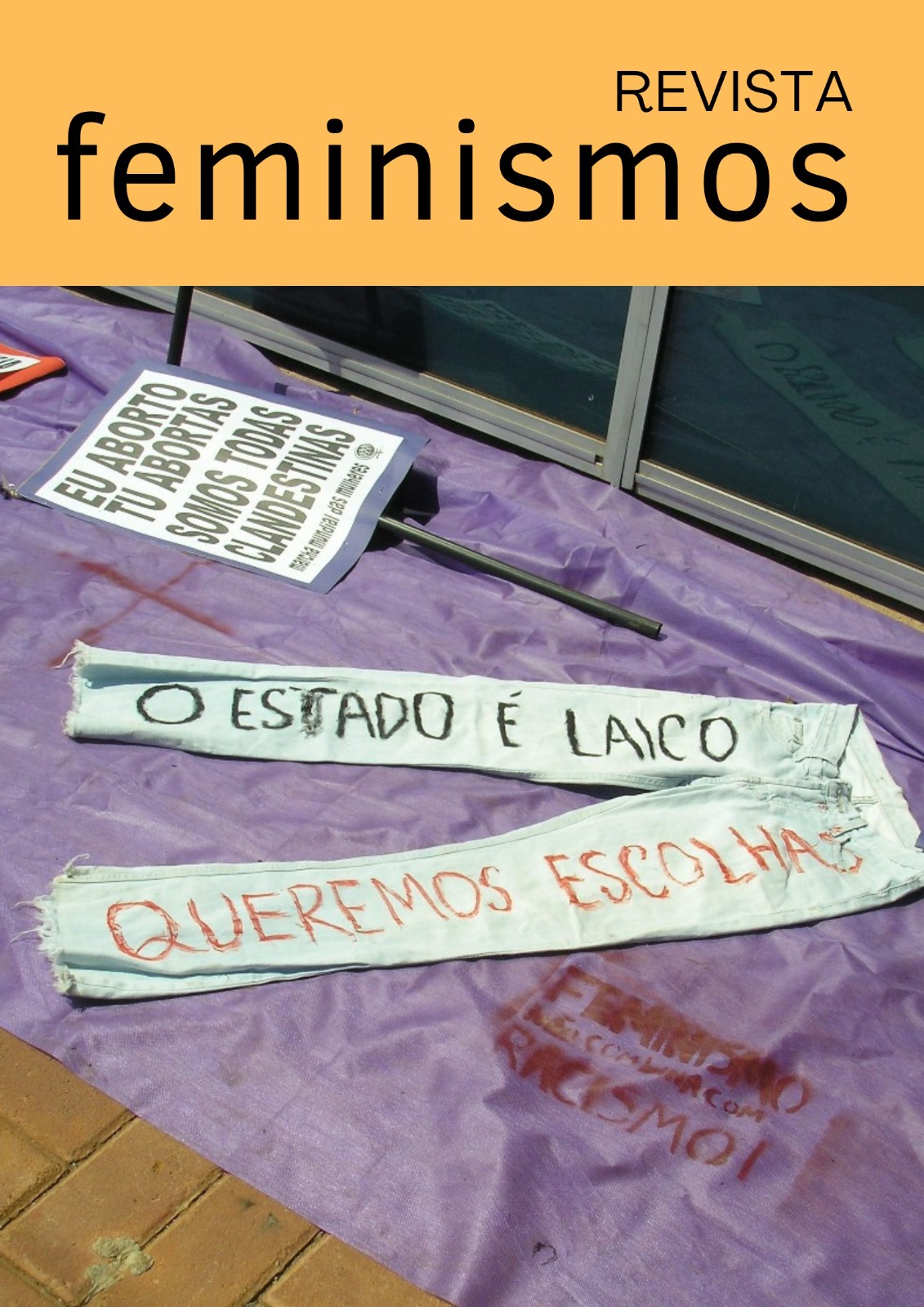A (AUTO)NARRATIVA DE VIDA COMO MÉTODO REFLEXIVO DOS PAPÉIS IDENTITÁRIOS DE PESQUISADORAS FEMINISTAS
DOI:
https://doi.org/10.9771/rf.v12i1.53970Palabras clave:
(auto)narrativa de vida, reflexividade, identidadeResumen
Este trabalho apresenta o método de (auto)narrativa de vida e o utiliza em um estudo empírico. Neste estudo, explora-se a experiência da Autora, pesquisadora que sobreviveu a violência de gênero. Como método de autoetnografia, a (auto)narrativa de vida materializa a reflexividade de sujeitos que têm sido historicamente usados como objetos, através da compreensão dos elementos de suas identidades e alteridades. Assim, este trabalho demonstra a construção metodológica da ferramenta que foi baseada no método narrativo sugerido por Montgomery (2016). Com base nos resultados, argumenta-se que a aplicação do método de (auto)narrativa de vida possibilita as pesquisadoras envolvidas compreender suas identidades como dúbias e/ou fluidas. A conclusão do presente estudo estimula novas pesquisas na área e auxilia a pesquisadoras racializadas a desenvolverem suas pesquisas por meio de uma compreensão profunda dos significados de seus papéis identitários.
Descargas
Citas
AKOTIRENE, C. Interseccionalidade. São Paulo: Sueli Carneiro : Pólen, 2019.
ALMEIDA, S. Racismo estrutural. São Paulo: Sueli Carneiro : Pólen, 2019.
ALVESSON, M.; SKOLDBERG, K. Reflexive Methodology: New Vistas For Qualitative Research. London: SAGE Publications Ltd, 2017.
BASILE, S. Lignes directrices en matière de recherche avec les femmes autochtones. Quebec, CANADA: Femmes autochtones du Québec Inc., 2012.
BRUN, P. Le récit de vie dans les sciences sociales. Revue Quart Monde, v. 188, n. 4, 2003.
CARNEIRO, A. S. A construção do outro como não-ser como fundamento do ser. Tese (Doutorado em Filosofia da educação)—São Paulo, Brasil: Universidade de São Paulo, 2005.
CHINN, S. E. Performative Identities: From Identity Politics to Queer Theory. Em: The SAGE Handbook of Identities. 1 Oliver’s Yard, 55 City Road, London EC1Y 1SP United Kingdom: SAGE Publications Ltd, 2010. p. 104–124.
COLLINS, P. H. Black Feminist Thought: Knowledge, Consciousness, and the Politics of Empowerment. 2nd. ed. [s.l.] Routledge, 1990.
DORAIS, L.-J. La construction de l’identité. Discours et constructions identitaires, Culture française d’Amérique. p. 1–11, 2004.
EMIRBAYER, M. Manifesto for a Relational Sociology. American Journal of Sociology, v. 103, n. 2, p. 281–317, set. 1997.
ETTORRE, E. Autoethnography As Feminist Method : Sensitising the Feminist “I”. 1. ed. London: Routledge, 2016.
HARDING, S. Standpoint Theories: Productively Controversial. Hypatia, v. 24, n. 4, p. 192–200, 2009.
HOOKS, B. Talking Back: thinking feminist - thinking black. Toronto, Ont., Canada: Sheba Feminist Press, 1989.
HOOKS, B. Ensinando a transgredir: a educação como prática da liberdade. São Paulo: WMF Martins Fontes, 2013.
KILOMBA, G. Memórias da plantação: Episódios de racismo cotidiano (Plantation Memories: Episodes of Everyday Racism). 1.ed 2008 ed. [s.l: s.n.].
LORDE, A. Sister Outsider: Essays and Speeches. 1. ed. New York, NY: Crown Publishing Group, 1984. v. 3
MONTGOMERY, C. Narratives as tools in intercultural intervention with immigrant and refugee populations. Em: AL-KRENAWI, A.; GRAHAM, J. R. (JOHN R., 1964-; HABIBOV, N. (Eds.). Diversity and social work in Canada. Don Mills, Ontario, Canada: Oxford University Press, 2016. p. 220–246.
OYĚWÙMÍ, O. Invention Of Women: Making An African Sense Of Western Gender Discourses. First Edition ed. Minneapolis: Univ Of Minnesota Press, 1997.
RIBEIRO, K. Filosofia Africana: afirmações epistemológicas de sua existência. Em: FIGUEIREDO, A. (Ed.). Capim limão: ensaios sobre produção do conhecimento, material didático e outros textos. Rio de Janeiro, Brazil: [s.n.]. p. 38–53.
SANTOS, S. M. A. O método da autoetnografia na pesquisa sociológica: atores, perspectivas e desafios. Plural, v. 24, n. 1, p. 214–241, 30 ago. 2017.
SCOTT, J. Genre : Une catégorie utile d’analyse historique. Les Cahiers du GRIF, v. 37, n. 1, p. 125–153, 1988.
SCOTT, J. W. The Evidence of Experience. Critical Inquiry, v. 17, n. 4, p. 773–797, 1991.
SIMONET, P. J. Bruner. Pourquoi nous racontons-nous des histoires ? L’orientation scolaire et professionnelle, n. 34/2, p. 273–275, 15 jun. 2005.
TYNAN, L. What is relationality? Indigenous knowledges, practices and responsibilities with kin. cultural geographies, v. 28, n. 4, p. 597–610, 1 out. 2021.
Descargas
Publicado
Cómo citar
Número
Sección
Licencia
Autoras/es que publicam nesta revista concordam com os seguintes termos:
1. Autoras/es mantém os direitos autorais e concedem à revista o direito de primeira publicação, com o trabalho simultaneamente licenciado sob a Creative Commons Attribution License que permitindo o compartilhamento do trabalho com reconhecimento da autoria do trabalho e publicação inicial nesta revista.
2. Autoras/es têm autorização para assumir contratos adicionais separadamente, para distribuição não-exclusiva da versão do trabalho publicada nesta revista (ex.: em repositório institucional ou como capítulo de livro), com reconhecimento de autoria e publicação inicial nesta revista.
3. Autoras/es têm permissão e são estimuladas/os a publicar e distribuir seu trabalho online (ex.: em repositórios institucionais ou na sua página pessoal) a qualquer ponto antes ou durante o processo editorial, já que isso pode gerar alterações produtivas, bem como aumentar o impacto e a citação do trabalho publicado.

